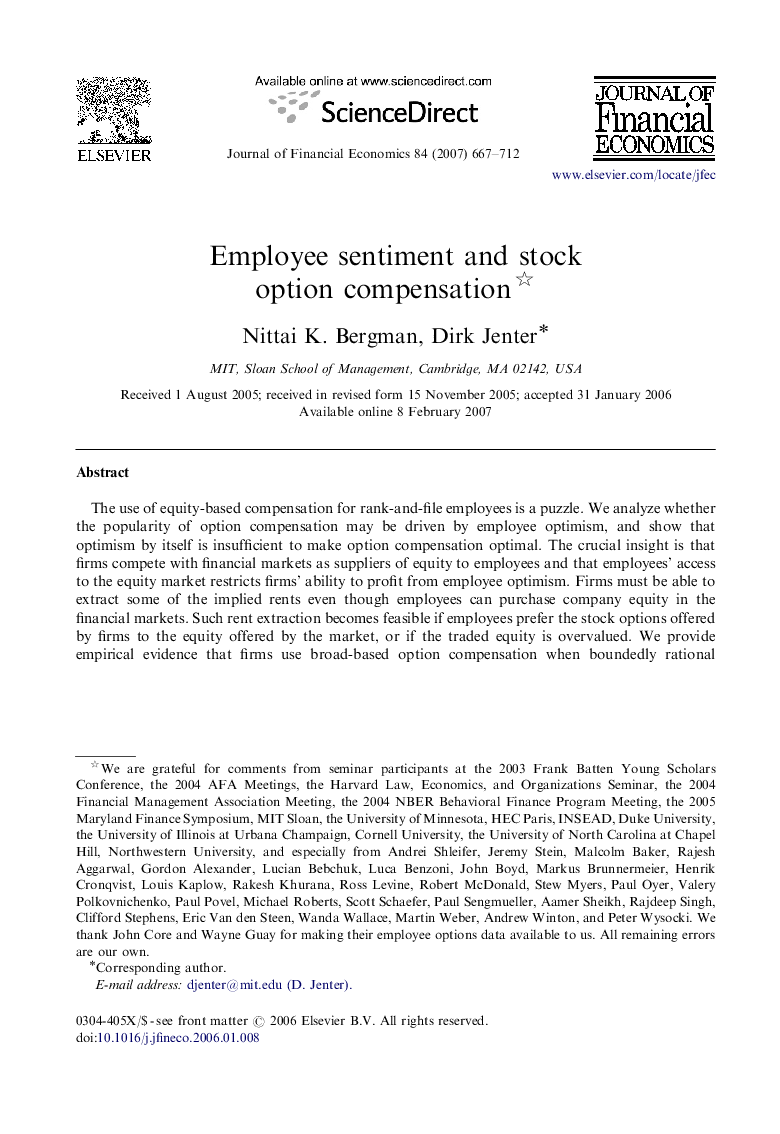| Article ID | Journal | Published Year | Pages | File Type |
|---|---|---|---|---|
| 960616 | Journal of Financial Economics | 2007 | 46 Pages |
The use of equity-based compensation for rank-and-file employees is a puzzle. We analyze whether the popularity of option compensation may be driven by employee optimism, and show that optimism by itself is insufficient to make option compensation optimal. The crucial insight is that firms compete with financial markets as suppliers of equity to employees and that employees’ access to the equity market restricts firms’ ability to profit from employee optimism. Firms must be able to extract some of the implied rents even though employees can purchase company equity in the financial markets. Such rent extraction becomes feasible if employees prefer the stock options offered by firms to the equity offered by the market, or if the traded equity is overvalued. We provide empirical evidence that firms use broad-based option compensation when boundedly rational employees are likely to be excessively optimistic about company stock, and when employees are likely to strictly prefer options over stock.
